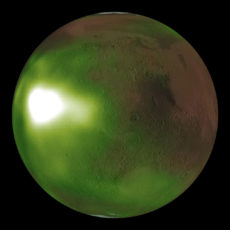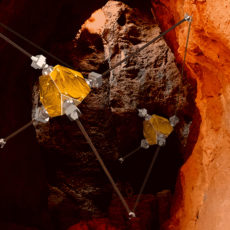
Kanglab unveils Marsbee, a bioinspired robot bee designed to create a 3D topographic map of Mars. Its flexible flapping wings benefit from the dynamically scaled up animal flight mechanisms that enable the robot to carry a payload of a stereo color camera with a sensor suite (a navigation camera, an inclinometer, a lidar sensor, and an inertial measurement unit (IMU)) as well as a communication module.
When fully charged, each Marsbee has a maximum flight time of 80 minutes, or around 1.56 mi (2.5 km), assuming a flight time of 0.5 m/s. Their main objective is to employ a Marsbee multi-agent system to construct a 3D topographic map by integrating depth measurements captured by Marsbees to improve the effectiveness of Mars rovers.
- Feed a passion for science and technology – Kids can learn more about the challenges of space exploration with this LEGO Technic NASA Mars Rover...
- Conduct a test flight – This advanced building kit for kids ages 10 and up includes a buildable toy version of NASA’s Ingenuity helicopter, which...
- AR brings the mission to life – The accompanying augmented reality app experience lets kids dive into the details of the rover and its mission

The proposed Marsbee project focuses on an alternative, bioinspired solution of flapping flights, which is particularly energy-efficient in low-density atmosphere. Migrating flying animals showcase astonishing long-range flights, disproportionate to their sizes,” said the researchers.










